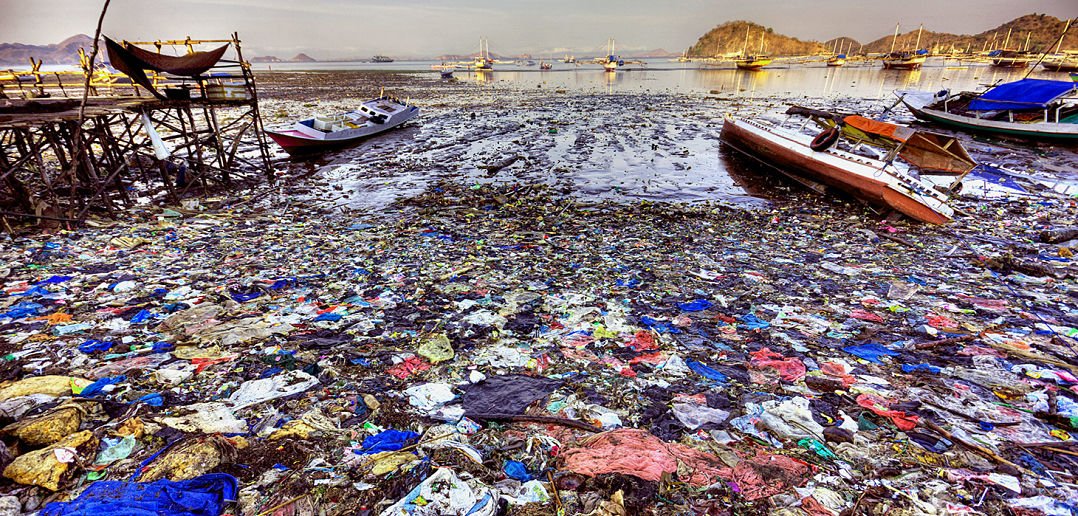Nestle Nigeria Setting Agenda For Adoption Of Proper Plastic Waste Management

By Edet Udoh
In order to save the environment from the menace of plastic and guard against the dangers of plastic pollution, Nigerians have been advised to avoid indiscriminate disposal of plastic wastes into the environment in order not to end up constituting a problem for the society in the nearest future.
Nigerians have also been encouraged to see themselves as environmental stewards through the adoption of diverse actions that aim to conserve, protect, and create a more sustainable environment by being responsible and caring for the natural environment in the best way possible.
Experts said the reality is that the only way this problem can be addressed is by individuals and companies around the world, agreeing to implement practices that reduce waste on every level.
These concerns on how to handle plastic wastes were raised by experts who spoke recently during the 2022 training jointly organized by Nestle Nigeria and Lagos Business School Sustainability Centre for journalists covering Health, Environment, Agriculture, and Business/Economy with the theme “Advancing Nutrition, Health and Environmental Awareness through the Media.”
Speaking on the topic “Environmental Stewardship: Exploring the impact of Plastic Pollution,” Dr. Eugene Itua, emphasized the need for proper plastic waste disposal and waste management, saying the menace of plastic pollution globally is overwhelming.
According to him, “Plastic is an incredibly useful material but made from toxic compounds known to cause harm to the environment and human health. Plastic pollution is the accumulation of plastic objects and particles in the earth’s environment that causes great complexities for all species on the planet.
“Plastic pollution occurs when plastics gather in an area and begin to negatively impact the natural environment, creating problems for plants, wildlife and humans.’’
While giving statistics on the menace of plastic and its effects on the environment, he stated that annually eight million tonnes of plastic waste find its way into the oceans from coastal nations, making it the equivalent of setting five garbage bags full of trash on every foot of coastline around the world, while outlining the consequences of plastic pollution prevalence on the environment and especially, on human health.
He said the World Health Organisation (WHO) in 2018 published research that revealed the presence of microplastics in 50 per cent of bottled water, adding that the test revealed that only 17 bottles were free of plastic out of 259 examined.
Itua said, “The average human consumes about 70,000 microplastics annually and plastic pollution has doubled over the past 50 years. Since 1950s around 8.3 billion tons of plastics have been produced worldwide, and a million plastic bottles are bought globally every minute.
“Plastic production has increased exponentially from 2.3 million tonnes in 1950 to 448 million tonnes by 2015, with production expected to double by 2050. It takes plastic about 400 to 600 years to decompose hence the importance in curbing global plastic pollution.”
He goes further to specifically highlight the adverse effects of plastic pollution while rating Nigeria as number two in plastic imports in Africa.
“Exposure to plastic pollution can result in a variety of adverse effects on human health. It can cause choking in toddlers and severe health outcomes like cancers, birth defects and impaired immunity.
“There have been links between plastic pollution and the growing health problems in today’s generation.
“Frequent complications such as human cardiovascular diseases, respiratory disorders, cancer, diabetes, chronic inflammation and other immune diseases are also attributed to plastic pollution,’’ Itua stated.

Oct 12, 2011
Itua called on Nigerians to conserve wildlife (biodiversity), maintain and enhance the quality and character of the landscape as well as protect the historic environment.
Explaining the examples of guiding principles for environmental stewardship and sustainability, Itua emphasized the need for compliance with environmental requirements; building a healthy environment; ensuring environmentally responsible facilities are used for operations; pollution prevention; minimising hazardous waste and use of toxic materials; adoption of green technology; conservation of energy, water and other resources as well as raise the bar of environmental education and awareness.
Nestle Nigeria as a good corporate citizen and environmental-friendly company and in a practical demonstration of its objective of promoting good life, sustainable prosperity, sustainable economic growth and a sustainable environment, reiterated its commitment to ensuring that none of its post packaging waste ends in waterways or ocean as its contribution to having a safe environment in the face of climate change realities.
Corporate Communications and Public Affairs Manager, Nestle Nigeria, Victoria Uwadoka, speaking during the training emphasized that all hands must be on deck to address some of the environmental issues facing the world, especially in Africa.
Victoria said her company was trying to ensure safe waterways and a clean ocean by way of collaborating with other critical stakeholders alongside the ecosystem including communities, government, media, manufacturing and recycling companies.
“Nestle commits to ensuring that none of its post packaging waste ends in waterways or ocean. To make this happen, we are working with manufacturers and other stakeholders within the packaging ecosystem to develop new types of packaging that are more eco friendly.
“Second, we are also ensuring that Nestle is a part of the action to eliminate indiscriminate disposal of plastics and this we are doing through public education and awareness campaigns.
“Again, Nestle is a founding member of the food and beverages recycle alliance. Nestle is not recycling but we are working with partners in the ecosystem by ensuring the recycling of plastic in the system by recycling companies to close the value chain which is to ensure plastic is recycled and of course, it is a work in progress as we look at the possibility of working with other recycling companies across all the states.
“We are also working with government at federal and state levels to ensure sustainable environmental practices,” she said.
To save the environment from plastic waste pollution, she warned Nigerians to desist from throwing wastes out of our cars and other vehicles, into the drainage systems and on the road and called on Nigerians to be conscious of the impact that improper disposal of plastics and other wastes can have on the environment.
Uwadoka advised on the need to gather and segregate wastes to be recycled instead of being disposed of indiscriminately, noting that by so doing we will have a cleaner environment free of malaria and water-borne diseases.
She said Malaria is encouraged when our plastics are gathered in one place and collected water providing an enabling environment for malaria causing agents to breed.
“So, the cleanliness of our environment is for our own good and I urge all of us to come together and play a part to ensure that we have a cleaner environment,” she said.
Uwadoka highlights that the “government has already put laws in place to ensure our environment remains clean.”
While specific actions are involved, collective action is vital; consumers, businesses and individuals are all required to play their parts too to ensure environmental and health safety.
This, she said, is because reducing exposure to toxicants from plastic wastes will increase the chances of having a clean environment and a healthy society.
As solutions to the plastic pollution challenge, Dr. Itua advocated for shopping with reusable bags; drinking water with a reusable water bottle;, supporting recycling –sorting no disposable plastics; adopting better choices at home; avoiding cosmetics and personal hygiene products having microbeads, the little dots in your toothpaste, and facial scrubs, which are actually a type of microplastic; educate businesses and charged all stakeholders including the media to get involved.





